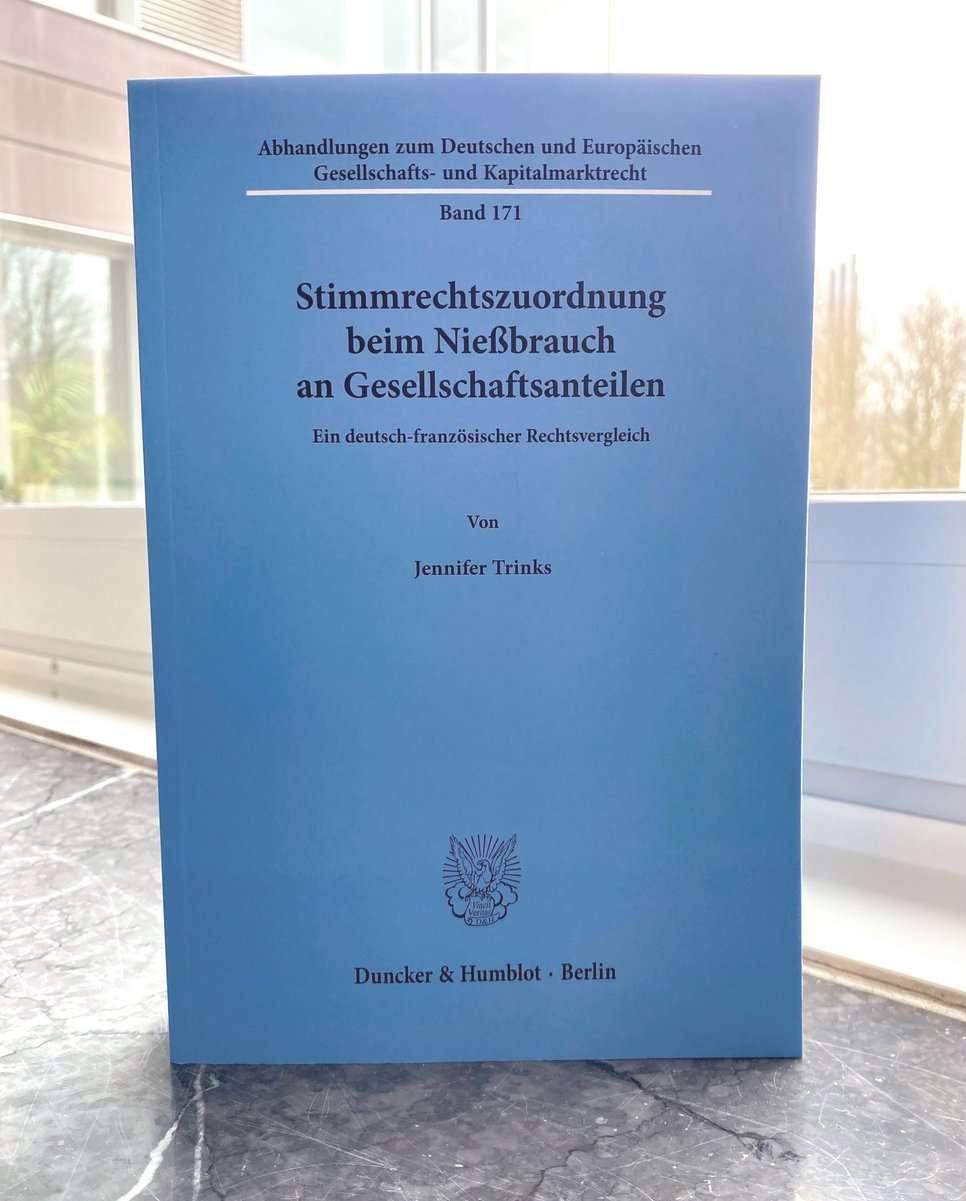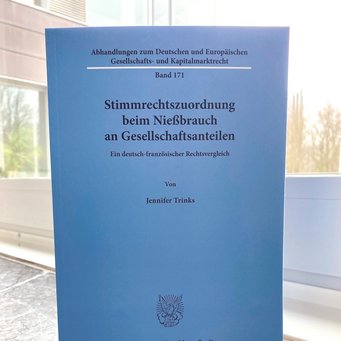The Allocation of Voting Rights in the Usufruct of Company Shares
A German-French Comparative Study
Usufruct is a legal instrument claiming a long history. In addition to its application in the context of land and adjoining structures, it has come to play a particularly important role in estate planning as regards the transfer of businesses or partnerships upon succession. Difficulties arise, however, regarding the question of who has the right to vote in such cases, the usufructuary or the shareholder.

For more than a century, this question has been discussed by scholars and practitioners in Germany without any sign of a consensus having emerged. While German commentators have considered different allocation models, French lawmakers have opted for the distribution of voting rights based on the particular object to be decided at the shareholder’s meeting. Against this background, Institute research fellow Jennifer Trinks examines in her doctoral dissertation the relevant usufruct and corporate law rules from a comparative perspective. In drawing a contrast with French law, it becomes apparent that German law not only supports the exercise of voting rights by the usufructuary but that such an assignment ultimately also corresponds to the rationale underlying the prohibition against transferring voting rights in isolation from the underlying shares (Abspaltungsverbot).
Image: © Max Planck Institute for Comparative and International Private Law
